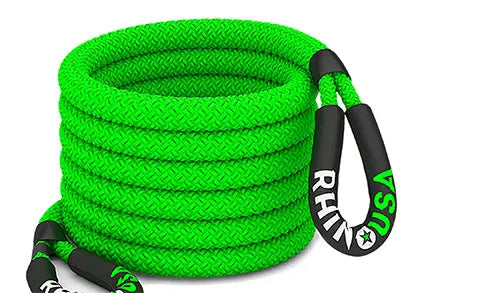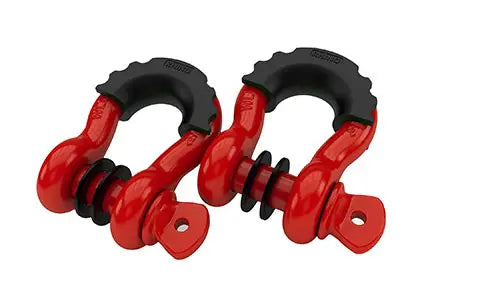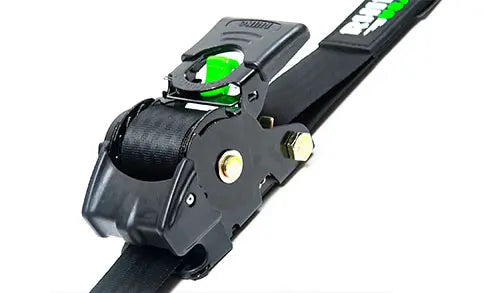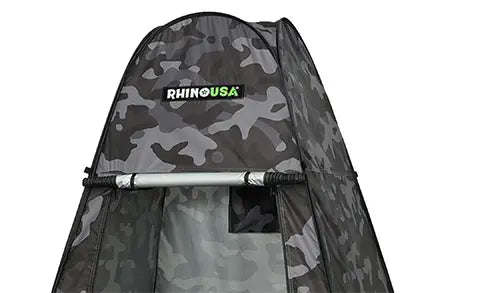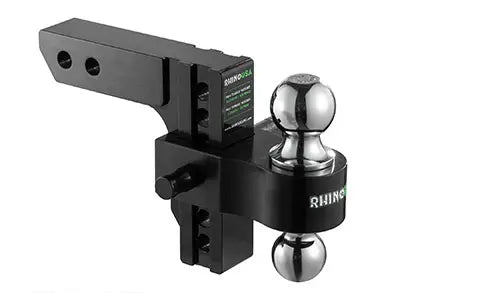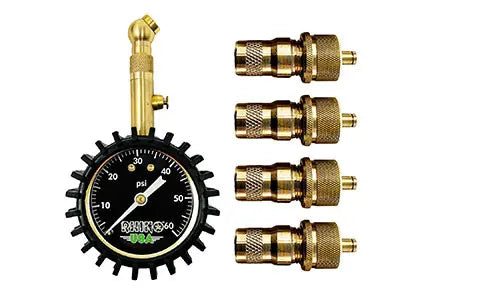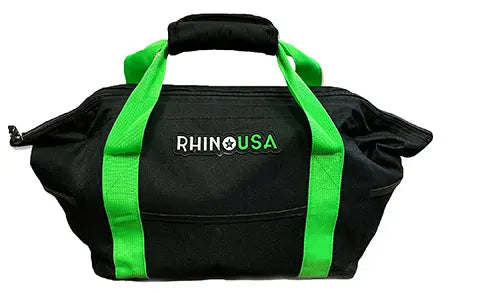
5 Ways Tow Straps with Hooks Can Kill You
Today, we are going to be talking about the dangers, and deadly mistakes of using a tow strap with hooks. This is something I have been wanting to discuss with our audience for quite some time now, and it is a dire warning to you, your family, friends, and even acquaintances. Share this information with everyone you know that may find it useful. These tow straps can be misleading and are still to this day sold in almost every automotive parts store in the U.S. Continue reading below for 5 of the most dangerous reasons you should avoid using a tow strap with hooks when recovering a vehicle.
1. Confusing a Tow Strap with a Recovery Strap

A deadly misconception is that tow straps are the same as recovery straps. This is completely false. A tow strap is used for slowly moving a disabled vehicle (one that is not stuck) from point A to point B, while a recovery strap is used for tugging and yanking vehicles out of tough to get out of spots. Imagine that you are in a functional vehicle and you are slowly towing another vehicle down the road to a nearby repair shop, it would be okay to use a tow strap for this. Whereas if you are trying to remove a stuck 4x4 from a ditch, you would be wise to ditch the tow strap with hooks and use a recovery strap instead.
2. Lack of Stretch When Recovering a Vehicle

There is a simple reason you will find more tow straps with hooks VS. recovery straps when shopping your local auto parts stores, they are far less expensive to make. Why? Because tow straps with hooks are usually made with just polyester. Polyester is much cheaper than say, silk, or nylon. Normally, real recovery straps use a blend of poly/silk or poly/nylon, this allows for a strong strap with added stretch keeping you and your vehicle safe when performing a proper vehicle recovery. You do not want a strap with no stretch when recovering a vehicle, if that strap tears, the consequences could prove deadly.
3. Hooks do not Compare to D-Ring Shackles

If you are unsure of what a D-Ring shackle is, it is a steel piece of equipment used in conjunction with a shackle hitch receiver and a recovery strap. These heavy-duty d-rings drastically outperform tow hooks when it comes to properly recovering a stuck vehicle. Below we will go over the average breaking strengths for both products to help give you a better understanding on these major differences.
A ¾” D Ring Shackle usually has a working load limit of 4.5 tons, with a safety factor of 6. This sets the minimum breaking strength of a D-Ring shackle at a whopping 57,000 lbs. Insert “your mom” joke here.
Now we will compare that to the typical hook found attached to a cheap tow strap. The safe working load limits of tow straps with hooks average around 3,000 lbs. and they have an average minimum breaking strength of 10,000 lbs. You will not need to do the math to see how dangerous this can be. Another good alternative like the d-ring shackle, is the shackle hitch receiver, which is also designed for a safe and quick off-road recovery.
4. The Appearance can be Totally Deceiving

At first glance, you may think (like many of us did) that this is a heavy-duty strap. After all, it has cool looking hooks on it. Therefore, so many people make the mistake of purchasing a tow strap with hooks for the wrong reasons, and in some unfortunate cases, have died as the result. I write this wishing I had been able to warn these poor folks of the dangers when using these straps for a recovery. You also need to keep in mind that most vehicles do not come pre-equipped with a secure recovery point, so you may experience an airborne bumper or two if you connect these hooks to a weak spot on a vehicle. Which actually leads us to our last warning for this article, these hooks can slip when you least expect.
5. The Tow Hook Can Slip and Kill You or Another

When it comes to recovering a vehicle, you would be smart to use a loop-end recovery strap and connect it to the above-mentioned d-ring shackle. This is the by far the safest and most secure recovery point on a vehicle. Do not, and I repeat DO NOT use a tow strap with hooks connected to a random recovery point on the vehicle. These hooks can and eventually will slip from that point, and come flying through your rear windshield at unprecedented speeds, what follows will either be tragedy, or a terrifying lesson you will replay in your head every time you perform another vehicle recovery.
Below are some tragic stories of people dying as the result of one of the above mistakes:
- Man killed when tow hook whips into back of his head
- Man killed when tow strap smashes through back window
- Man killed by tow hook in recovery accident on farm
We did not write this article to scare you away from ever using a tow strap with hooks again, but to warn you not to ever use it for a recovery. It does serve a useful purpose for slowly and carefully towing a stalled vehicle down a road, but be sure you are following the correct procedures before doing so.
Alternatives to a Tow Strap With Hooks
1. Rhino USA Ultimate Recovery Tow Strap
2. Rhino USA D-Ring Shackles
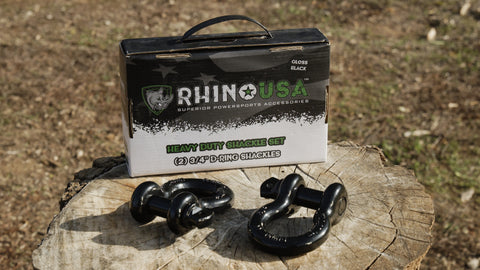 D-ring shackles are a stronger, more secure way to attach your kinetic rope or recovery tow strap to another vehicle. The Rhino USA 3/4" D-Ring shackles are made of the strongest, more durable materials and have a break strength over 40,000lbs. Don't skimp out on top-notch quality and safety!
D-ring shackles are a stronger, more secure way to attach your kinetic rope or recovery tow strap to another vehicle. The Rhino USA 3/4" D-Ring shackles are made of the strongest, more durable materials and have a break strength over 40,000lbs. Don't skimp out on top-notch quality and safety!
3. Rhino USA Kinetic Recovery Rope

Rhino USA's Kinetic recovery rope is the safest and most effective way to recover a stuck vehicle. The Rhino USA kinetic rope is made of double braided nylon and a urethane polymer coating and can store up to 4x more energy than a traditional tow strap. The kinetic recovery rope pairs perfectly with soft shackles or 8-ton super shackles.
We want to sincerely thank you for taking the time to read this article, by doing so you are showing your commitment to protecting yourself and others when performing a vehicle recovery. If you have any questions regarding vehicle recovery, call us at +1 (800) 575-7310 to speak to a helpful team member.
 FAQ's
FAQ's
Where to attach a tow strap without hooks?
The best way to attach a recovery tow strap without hooks is by using a shackle hitch receiver. A Shackle hitch receiver fits all standard 2" receivers instead of attaching a tow strap to a 2" ball (very dangerous!). The shackle hitch receiver has a d-ring shaped connection point for your recovery tow strap or kinetic rope, and has a break strength over 41,000lbs.
Can I use a recovery strap for towing?
Recovery straps and tow straps have different designs and purposes, and while they may appear similar, they are intended for distinct applications. It is generally not recommended to use a recovery strap for towing, especially for regular towing operations.
Recovery straps are designed to withstand the shock-loading that occurs during vehicle recovery operations, such as pulling a stuck vehicle out of mud or snow. They are built with elasticity to absorb and distribute the force generated during recovery. Towing straps, on the other hand, are typically sturdier and less elastic, designed to provide a consistent and controlled pull without excessive stretching.
- Choosing a selection results in a full page refresh.

